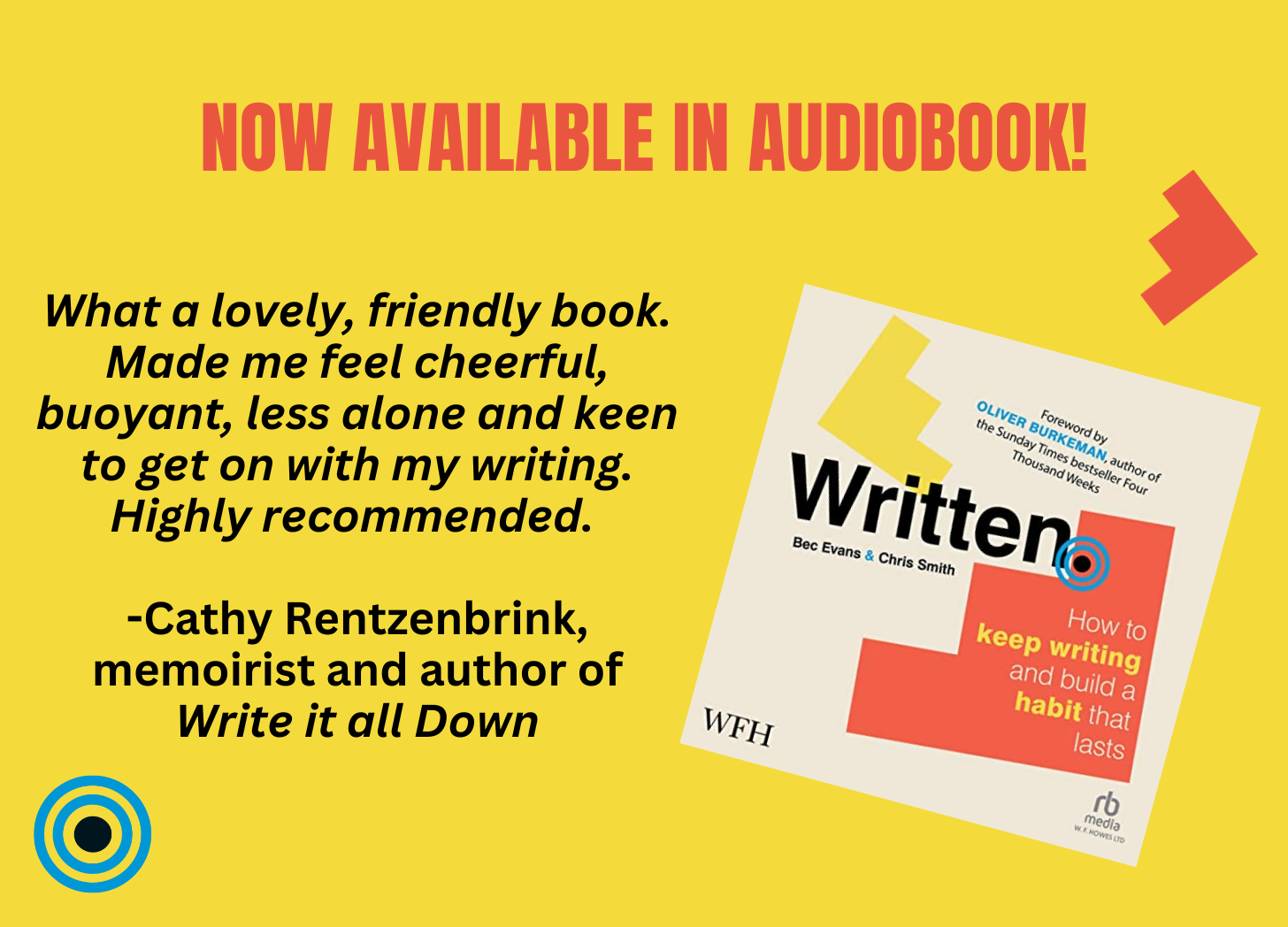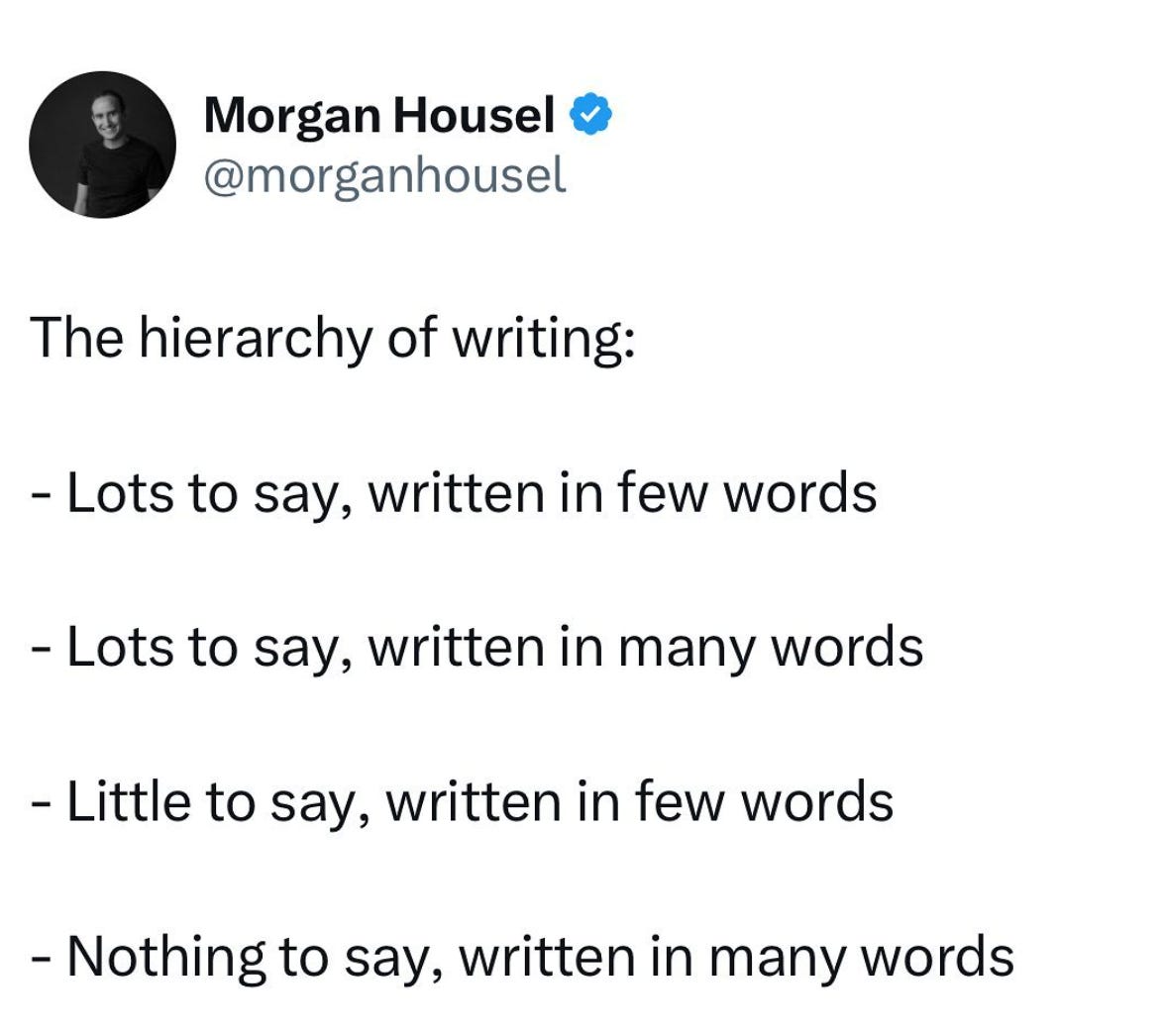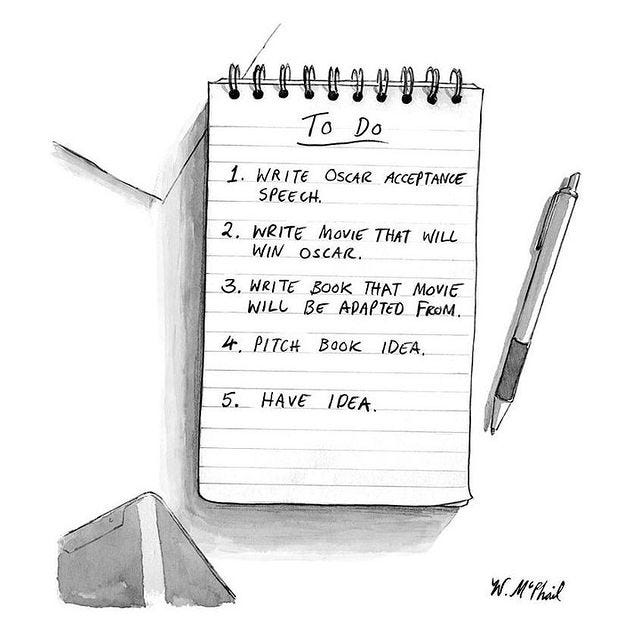Time management and accepting the impossible
Why the best productivity advice means accepting that you can't do everything. Wise words from Oliver Burkeman and audiobook news.
I’ve been working with a coaching client for the past four weeks. When we first chatted, he had a list of 40-odd writing projects in his publication pipeline. Not 40-odd ideas you understand, 40-odd projects. His list covered two pages of A4. He didn’t have enough time, he’d said yes to too many things, he didn’t know what to do first, he felt thoroughly overwhelmed.
So, he colour coded his project list. Red for those that could wait, amber for ones that he might get to later down the line, green for ones to do now. His list went down from forty-odd to four.
Anti-productivity advice
The reason I’m telling you this little story is because contrary to a lot of productivity advice, managing your time doesn’t need to be about purging things from your life, ignoring your family or practicing some kind of hard-nosed ‘radical prioritisation’. It can just be about a change of mindset.
Nothing had really changed for our coaching client, yet everything had changed. He hadn’t found more time. He hadn’t even reduced the number of projects on his list. The simple act of colour coding made him feel more in control and that gave him more clarity about what was important.
The impossibility of perfection
The writer Oliver Burkeman (more of his wisdom below) has a similar line on time-management. Acceptance, for him, is a form of control. He told us this:
When you think that you’ve got so much to do, it’s going to be incredibly hard to get your book perfect. The reality of the situation is that it’s impossible to make your book perfect. Basically it’s worse than you think. When you realise that you’re not going to be capable of getting your arms around everything there is to do, there’s actually huge liberation in that.
For Burkeman, accepting the fact that you can’t do everything isn’t a reason for despair but rather, celebration. When you acknowledge that you can’t achieve perfection with the limited time you have on the planet, then you can focus on what truly matters to you instead.
When our coaching client accepted that he couldn’t do everything on his list, this helped him consider which projects he actually wanted to write. He ended up working on a piece that was personally important to him but had put off for years because his focus was on ‘getting through the list’ rather than on what mattered to him the most.
Acceptance brings freedom and with freedom comes meaning.
Keep writing and take care.
Chris
The wisdom of Oliver
We thought we’d share some time-related tips from Oliver Burkeman, author of the very excellent book Four Thousand Weeks. We interviewed Burkeman for the launch of our book Written. Here’s four of his best:
I’ve often assumed that the next thing would be incredibly hard or scary, and that’s a good reason to procrastinate. But when you actually get into it, the experience doesn’t justify the anxiety you had about it. Part of the reason that feeling anxious and procrastinating on things is because they boost the feeling of control. If you don’t start something, you’re still in the driver’s seat. I think most of us will do anything to avoid that lack of control.
The only time management technique worth its salt is Step 1. Choose something you know matters to you. Step 2. Figure out when today or this week you’re going to give it 20 minutes or so of your time. Then there is no Step 3.
All the useful productivity stuff that’s ever worked for me, and that continues to work, is just about coming up with a slightly wiser answer to the question: “What shall I do right now?” And it’s feeling slightly more motivated and enthusiastic about what shall I do right now. Find things to do that you are willing to do and that you think you can do. If it’s not a thousand words but it’s 200 words, then the difference between those two is so much smaller than the difference between doing something and doing nothing. Cut yourselves some slack.
When I’m a little bit kinder to myself and think about trying to make the day enjoyable, I’ve noticed that actually it’s better for my productivity and my output. That kind of noticing of what’s emerging in my life as a writer as a good routine for me is actually a really useful skill.
If you’d like more, check out the summary of our conversation with Oliver on the blog: The perfect routine doesn’t exist: imperfect advice from Oliver Burkeman.
If that whets your appetite, you can read the full transcript here and watch the video of the conversation on YouTube.
There is also excellent advice from the archives - read: Oliver Burkeman on time and how to use it and Oliver Burkeman’s 10 tips for a productive and happy writing life
Written is selling out fast
We had the (sort of) good news last week that our book Written: How to Keep Writing and Build a Habit that Lasts has sold out its first print run. So, 🥳 and also 😭 as new hardback editions won’t be available in some territories for several weeks
However, Written is still available as an ebook and in some stores, so if you were thinking of getting yourself a copy, get your skates on.
Here are some of the retailers which, at the time of writing, still have stock: Amazon UK (now £11.99, RRP £16.99), Bookshop UK, Guardian Bookshop and Amazon US
Now an audiobook
We are very pleased that Written is now available as an unabridged audiobook! Most of the book was expertly narrated by actor and voice over pro Russell Bentley but the first person bits were (in-expertly) narrated by us so we wait with with a little trepidation to hear what on earth we sound like. Gulp! 😬
The 7 hour 20 minute audiobook is available through: Amazon/Audible UK, Amazon/Audible US, Kobo, audiobooks, Google Playstore, Apple Bookstore as well as other smaller independents in the UK and various other retailers worldwide.
We’re going to be giving away two copies of the audiobook in next week’s newsletter so watch this space!
Spotted on Insta
With thanks to @morganhousel whose book The Psychology of Money we’ve just read and certainly has lots to say written in few words - highly recommended.
It’s a wrap for RESET
We’ve just finished our latest RESET writing course and it’s been an honour to support the latest cohort of writers as they reflect on their writing process and grow in confidence. Join the waiting list to hear about our summer RESET programme.
Here’s what a few said:
RESET has been enormously helpful. The programme is insightful, thought-provoking and has led to genuine change in how I approach not only my writing but other life goals. I feel so much more positive and empowered about my writing thanks for the course.
- Catherine, children’s novelist
The course has given me the time and permission to explore what works in a way I wouldn’t have allowed myself to do by myself. I’m still a work in progress but I’m beginning to feel like a real writer.
- Mel, novelist
Perhaps the most valuable aspect of the course for me has been the chance to actively notice my writing, and to try out a range of writing strategies with an open mind, and reflect on what works for me.
- Chris, lecturer, Leeds Business School
I haven't really enjoyed my writing since I finished school. Writing RESET helped me find joy in the craft again. I was able to make practical changes to my habits that fit my life as a working person.
- A.M, poet
The RESET program's evidence-based approach helped me explore and understand which writing habits worked and which didn't. Instead of prescribing a formula, the programme gave me the tools to discover a productive and consistent writing habits.
- University lecturer at Leiden University, Amsterdam
Links we love
➡️ We love this literature clock - different quotes about time from literary history - a new one every time you click
➡️ This A-Z writing challenge from coach Rachel Connor is a great way to keep committed and motivated. Each day in May a new letter and a new definition. Today is ‘p’ for powerlifting! Check them all out here.
➡️ And finally, in case you need a reminder to scale back, here’s a handy The New Yorker cartoon.










thank you for the literature clock! I can't stop looking at it!